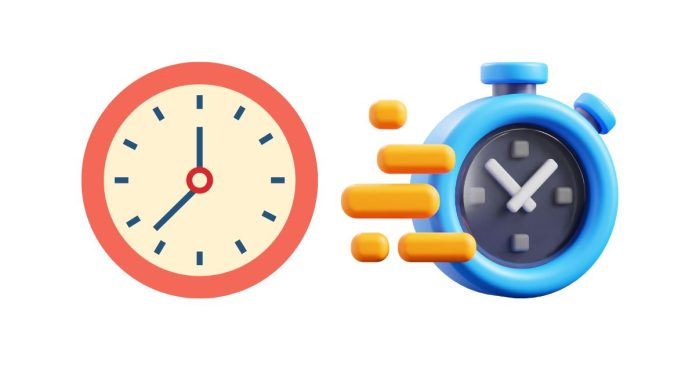The English language is full of words that can serve multiple roles depending on context, and “time” is one of those versatile words. But when you come across “time” in a sentence, you might wonder—is it being used as a verb or a noun? Let’s explore the different ways “time” functions in the language and uncover the answer to this question.
The Word “Time” as a Noun
Most commonly, “time” is used as a noun, referring to the concept of duration, a specific moment, or a point in the sequence of events. Here are some examples of “time” as a noun:
- Duration or Period:
- “We spent a lot of time studying for the test.”
- “She had a great time at the party.”
- A Specific Moment:
- “What time does the movie start?”
- “The time to act is now.”
- A Point on the Clock:
- “I looked at the time and saw it was 3:00 PM.”
- “It’s about time you arrived!”
As a noun, “time” refers to things like the ongoing passage of moments, specific points of reference (like 3:00), or an interval during which something happens.
The Word “Time” as a Verb
While less common, “time” can also function as a verb. When used this way, it generally refers to measuring or recording the passage of time, or even scheduling something. Here are examples of “time” used as a verb:
- To Measure Duration:
- “We need to time how long it takes to run the course.”
- “Can you time me during my workout?”
- To Set or Schedule:
- “We should time our visit to avoid the crowds.”
- “The event is perfectly timed to coincide with the festival.”
As a verb, “time” involves the act of measuring or planning based on time, or aligning an action with a specific time.
The Versatility of “Time”
The ability of the word “time” to function as both a verb and a noun is a great example of how English words can adapt and take on different meanings depending on their use. Whether you’re talking about the hours in a day, scheduling an event, or even recording how long something takes, “time” can serve multiple purposes.
In conclusion, “time” can be both a noun and a verb depending on how it’s used in a sentence. As a noun, it refers to the concept of time itself, specific moments, or intervals. As a verb, it refers to measuring or planning based on time. Understanding these different uses helps you master its meaning and usage in everyday language.
Do you have any other questions about tricky English words? Drop them in the comments, and let’s continue to explore the beauty of language together!


